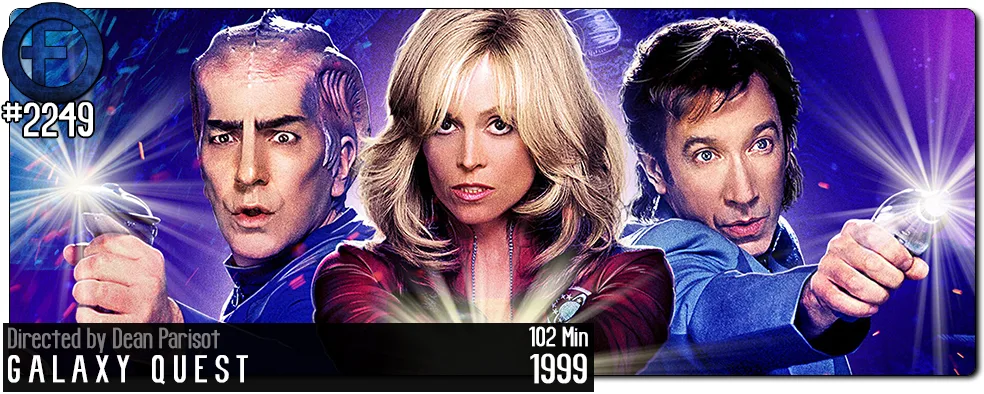Movie Review – Galaxy Quest
Principal Cast : Tim Allen, Sigourney Weaver, Alan Rickman, Tony Shalhoub, Daryl Mitchell, Sam Rockwell, Enrico Colantoni, Robin Sachs, Patrick Breen, Missi Pyle, Jed Rees, Justin Long, Jeremy Howard, Rainn Wilson.
Synopsis: The alumni cast of a space opera television series have to play their roles as the real thing when an alien race needs their help. However, they also have to defend both Earth and the alien race from a reptilian warlord.
********
Never give up! Never surrender! Few films in living memory retain almost universal adoration as Galaxy Quest. Directed by Dean Parisot and released back in 1999, Galaxy Quest was an under-the-radar box-office success that has garnered a significant cult following in the over twenty years since it debuted. While the film’s initial weekend haul was scarily low, positive word of mouth and critical acclaim saw the film become one of very few to actually earn more in its subsequent weekends than it did in its first in theatres. But why is Galaxy Quest so beloved? A riff on Star Trek, franchise fanboys and belligerent cast members, described by many as charming?
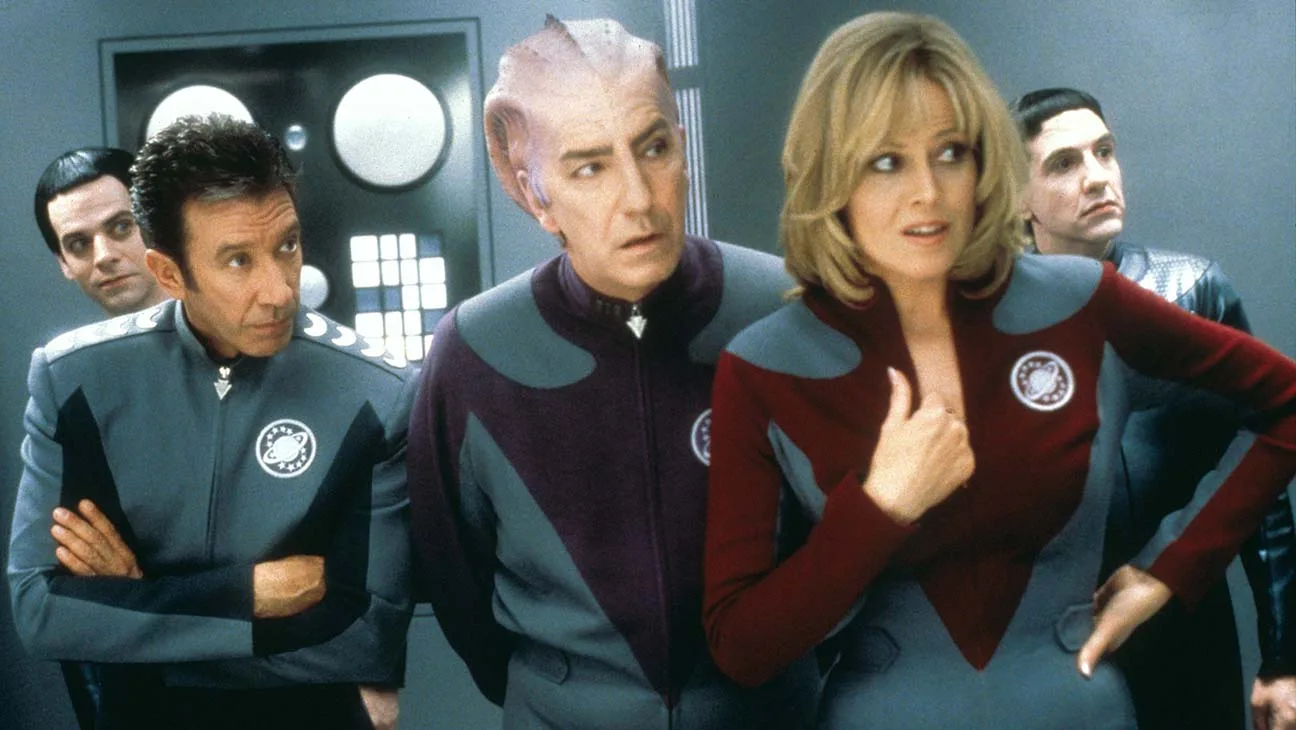
Picture this: a cast of actors who once portrayed the heroic crew of a starship on a beloved TV series – “Galaxy Quest” find themselves years later struggling to escape their on-screen personas. The talented ensemble cast of Galaxy Quest includes Tim Allen as Jason Nesmith (Commander Peter Quincy Taggart), Sigourney Weaver as Gwen DeMarco (Lieutenant Tawny Madison), Alan Rickman as Alexander Dane (Dr. Lazarus), Tony Shalhoub as Fred Kwan (Tech Sergeant Chen), and Daryl Mitchell as Tommy Webber (Lieutenant Laredo). These actors find themselves in a peculiar situation as they’re thrust into a real-life cosmic adventure when an alien race, the Thermians, believing their TV show to be historical documents, recruit them to save their species from annihilation. Working as a dysfunctional team, the cast of a once-popular television series have to come together to fight the forces of Serras (Robin Sachs), an alien warlord wanting to obliterate the Thermians from the universe.
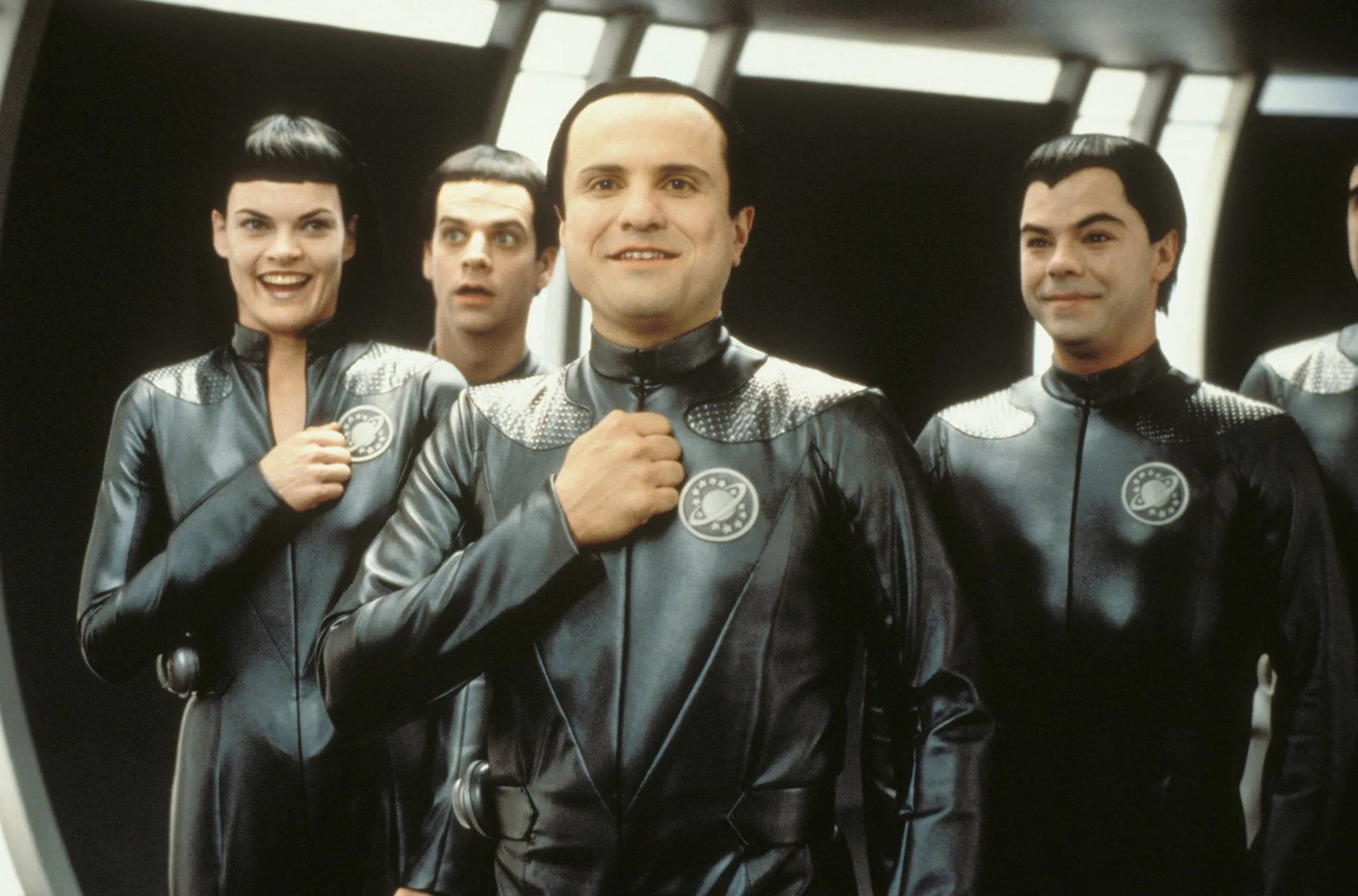
What strikes you immediately about Galaxy Quest is the incredible synergy among the cast members. Each actor brings a unique flair to their respective roles, embodying the essence of their characters. Tim Allen, known for his comedic prowess, shines as the charismatic Jason Nesmith, who eventually embraces his alter ego, Commander Peter Quincy Taggart, and learns what it truly means to be a hero. Sigourney Weaver, in a delightful twist on her frosty, hard-bitten sci-fi queen persona, portrays Gwen DeMarco, whose primary role is repeating the computer’s messages. Her transformation from a somewhat one-dimensional character to a central figure in the Thermian’s quest is a testament to Weaver’s incredible range as an actress. However, the true standout in the cast is the late, great Alan Rickman as Alexander Dane. As Dr. Lazarus, the alien science officer, Rickman delivers a performance that is nothing short of iconic. His character embodies the frustration and resignation of an actor typecast in a role he resents, and yet, he manages to steal every scene he’s in. The layers of emotion and wit he brings to the character are a testament to his acting prowess. No matter what, he will be avenged.
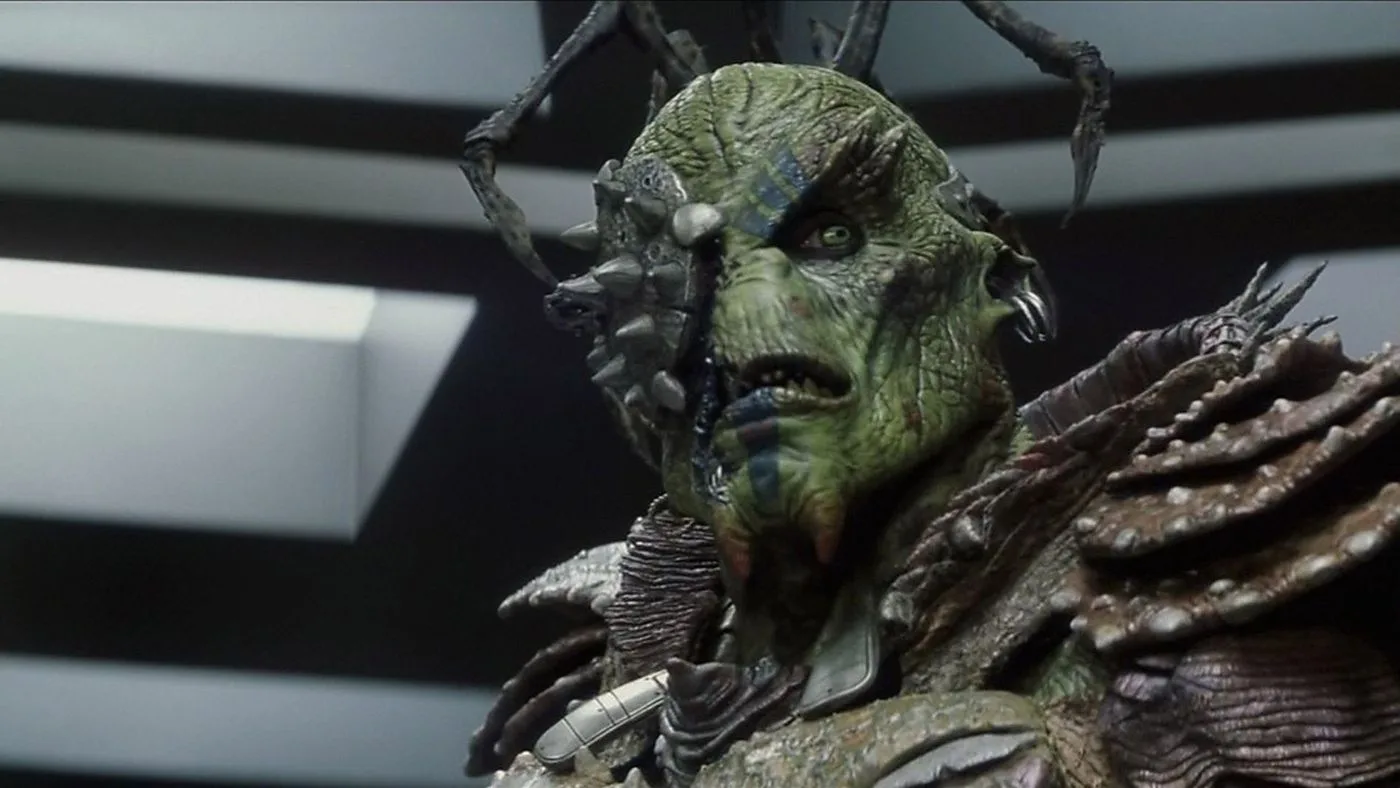
The supporting cast also deserves a tip of the hat. Enrico Colantoni portrays Mathesar, the Thermian leader, with a perfect blend of naivety and earnestness. Justin Long makes an early appearance in his career as Brandon, a devoted Galaxy Quest fan who becomes a pivotal part of the adventure. Sam Rockwell plays Guy Fleegman, an unassuming actor from the TV show’s pilot episode, who hilariously realizes he’s the expendable crewmember often met with a tragic fate. These actors and their characters add depth and humor to the film, contributing to its well-rounded ensemble. What makes Galaxy Quest a work of cinematic brilliance is its ability to simultaneously lampoon and celebrate the Star Trek franchise, without ever descending into parody. The film affectionately teases the quirks and idiosyncrasies of the sci-fi genre while demonstrating a profound respect for the legacy it playfully mocks. The Thermians, with their childlike innocence, are an inspired take on the classic Star Trek aliens, emphasizing the utopian ideals of unity and cooperation that the show often championed. The film also pays homage to the meticulously designed spacecraft, futuristic gadgets, and imaginative alien species that have become staples of the sci-fi genre. The clever screenplay, penned by David Howard and Robert Gordon, navigates the delicate balance of humour and heart. It draws on the juxtaposition of the actors’ insecurities and personal conflicts with the grandeur and nobility of their fictional characters. The result is a narrative that manages to be uproariously funny while also tugging at the heartstrings.

In terms of visual effects, Galaxy Quest offers a visual spectacle that can rival even some of the most grandiose sci-fi epics of our time. The spaceship, the NSEA Protector, is a marvel of design and detail. It feels like an authentic creation from the ’70s science fiction era, replete with flashing lights, touch-sensitive controls, and a timeless aesthetic that will transport you back to the heyday of space exploration on screen. One can suggest more recent sci-fi counterparts, such as Seth MacFarlane’s The Orville – itself a direct lift off Star Trek – owe a lot to the satirical, sartorial nature of the NSEA Protector. For a film of last century, most of the VFX here still stand solidly, although several, specifically the giant rock creature Gorignak, and some of the futuristic set extensions as Nesmith and DeMarco scale the bowels of the vessel in the climactic third act, do feel quite of-the-period thin in terms of realism. The alien puppets used, the open-space battles and the various practical effects utilised by the film still hold up, and rewatching the film even in today’s whizz=bang modernity is quite the charming experience. If nothing else, it’s at least on par with many of that year’s other bigger-budget projects.
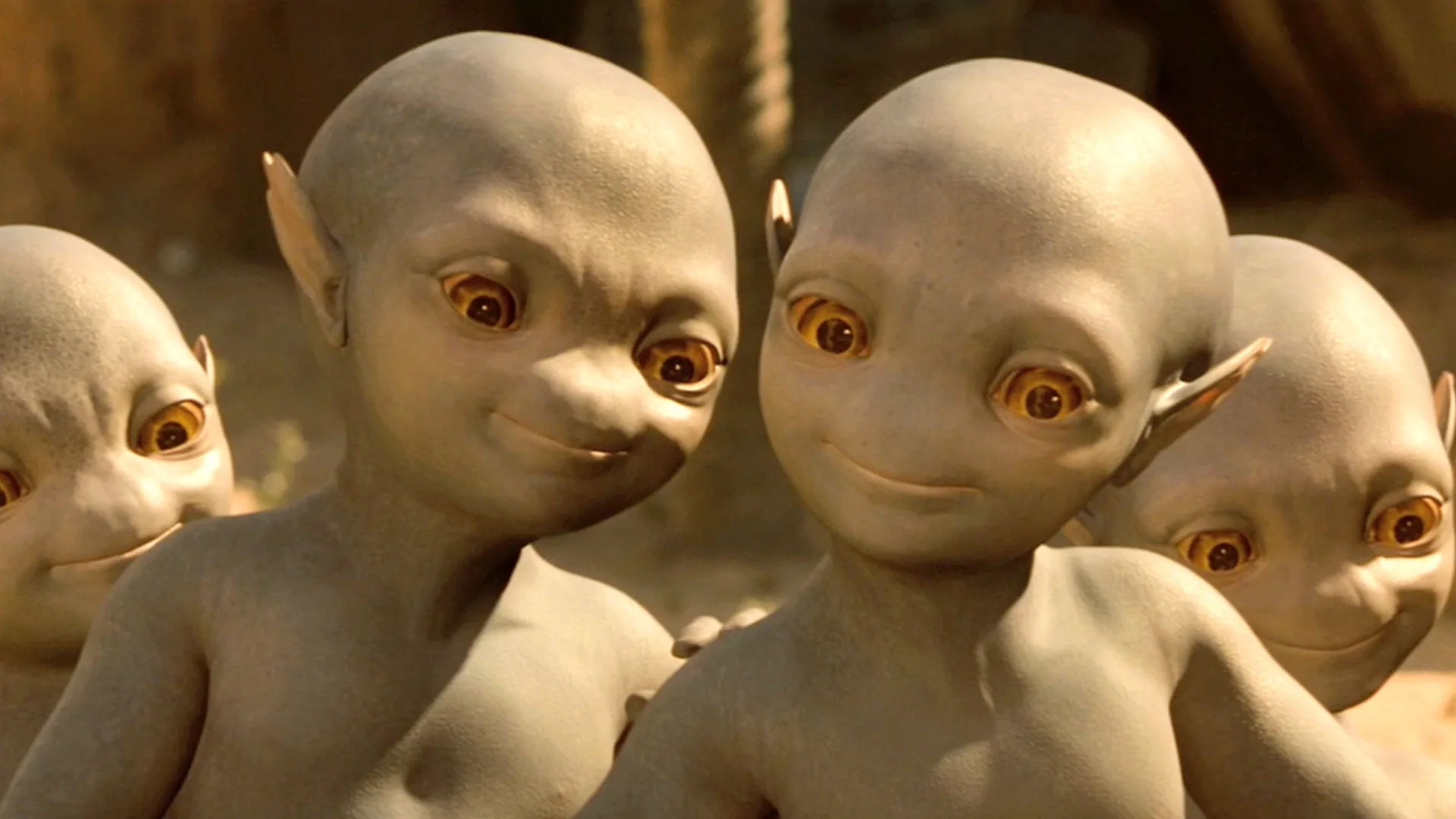
Twenty-four years have passed since the release of Galaxy Quest, and it’s remarkable how the film has transcended the boundaries of its release year. It didn’t just capture the hearts of sci-fi fans, it found a place among the broader audience who appreciate good cinema, brilliant humour, and heart-warming stories. Its legacy endures, and it remains a beloved classic for various reasons. First and foremost, Galaxy Quest is a comedy that delivers genuine laughs. The humour is not confined to a specific generation or a niche group of enthusiasts. It’s universally relatable and timeless. The film’s clever commentary on celebrity culture, fandom, and the blurred lines between fiction and reality continues to resonate. Secondly, the film’s affectionate homage to Star Trek has solidified its place in the hearts of Trekkies and Trekkers alike. It’s a love letter to the iconic franchise, and it managed to garner the admiration of Star Trek actors and fans. The recognition it received from the Star Trek community is a testament to its authenticity and reverence for the source material. At one point, it was voted by fans as the sixth greatest Star Trek film ever made, which is quite a feat for a film that isn’t actually Star Trek. Thirdly, Galaxy Quest showcases the power of imagination and the timeless appeal of science fiction. It reminds us of the importance of stories that transport us to far-off galaxies, where heroes rise to the occasion and ordinary people become extraordinary. This theme, combined with the memorable characters, is at the core of its enduring charm.
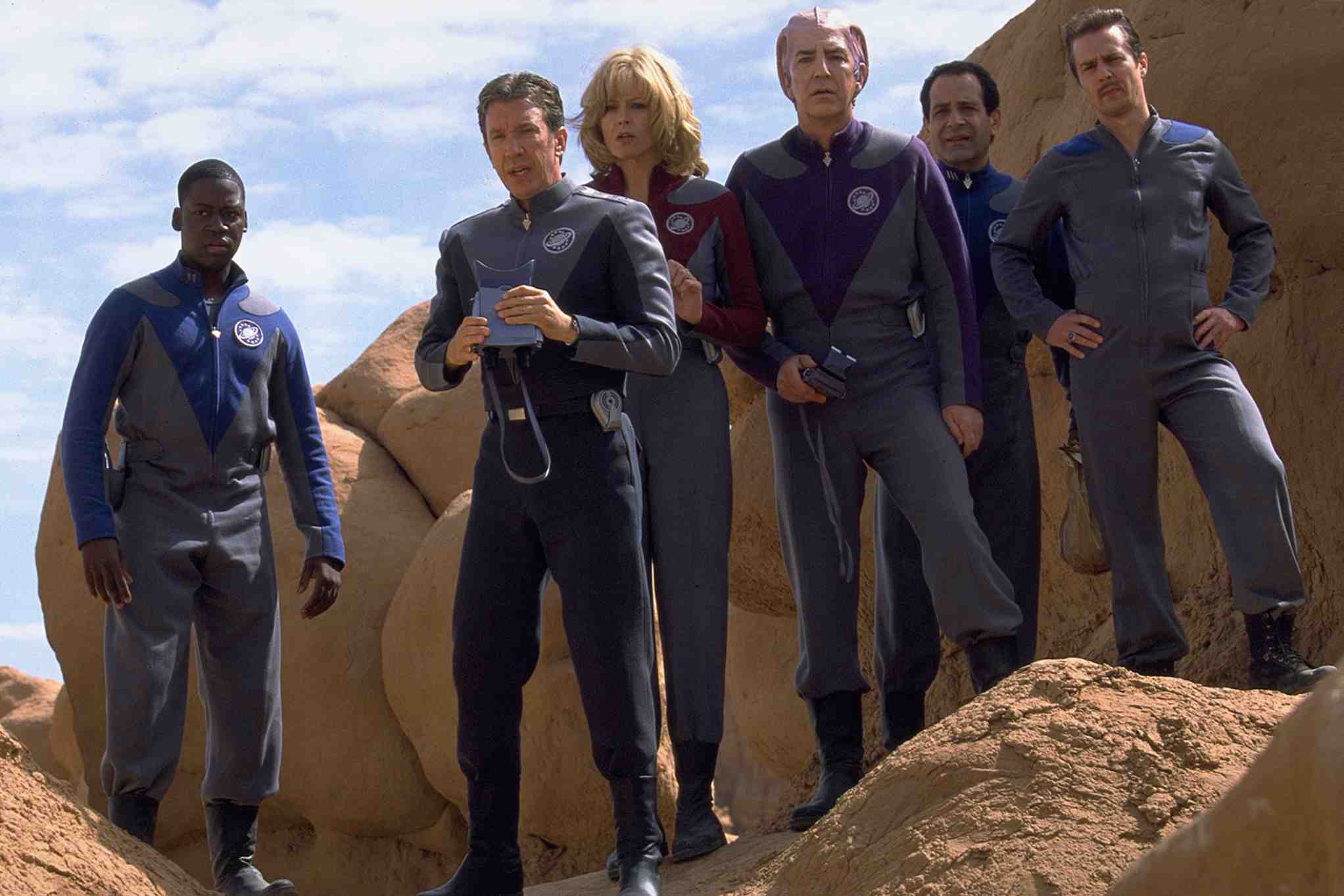
If nothing else, Galaxy Quest is a perfect balance between spoof satire and heartfelt appreciation of its subject matter. The film’s witty humour, stellar performances, and brilliant blending of satire and homage have affected audiences for over two decades since; that it skewers Star Trek and also works as a warm-hearted love-letter to that franchise is an astounding feat, and one few similar spoofs have managed since. Its legacy as a sci-fi cult favourite and a beloved comedy continues to thrive, making it a must-watch for both long-time fans of the genre and newcomers to the intergalactic realm. For me, centrally winning performances by both Tim Allen and Alan Rickman, cradling the story’s most subtle character arcs – Allen’s role is a particularly scathing indictment of one Willian Shatner, whose behaviour to his fellow Trek cast-mates was a subject of appalling arrogance – is a large part of why this film works, but the stellar supporting cast and Dean Parisot’s charming direction, is arguably the singular success of Galaxy Quest’s longevity.

